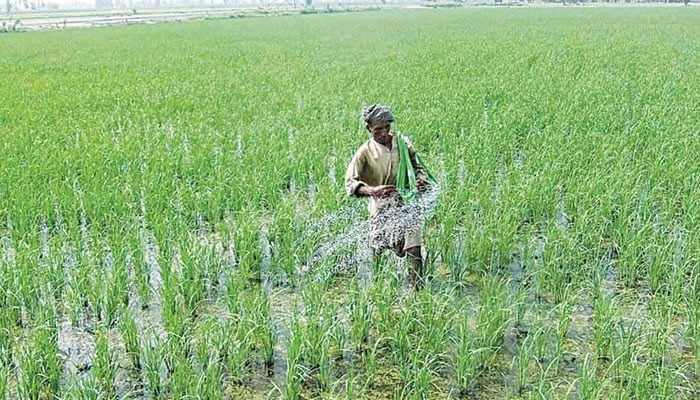Tougher penalties suggested for counterfeit seed sellers
ISLAMABAD: In a move to tackle counterfeit seeds, the National Assembly’s Standing Committee on Food Security and Research on Wednesday recommended stringent legal measures under the proposed Seed (Amendment) Bill, 2024. If enacted, offenders could face up to seven years in prison and fines reaching Rs2 million, with the crime classified as non-bailable.
The committee, chaired by MNA Syed Tariq Hussain, emphasized the importance of safeguarding farmers and maintaining the integrity of the agricultural sector.The proposed Seed (Amendment) Bill aims to revise regulations related to seed certification, quality and distribution in Pakistan. It seeks to establish the National Seed Development & Regulatory Authority and a board of governors (BoG) to oversee the seed industry.
Under the recommendations, the authority’s chairman must possess at least 10 years of experience, a master’s degree, and relevant management experience.The committee noted that the Seed Act of 1976 and its 2015 amendment were enacted following resolutions from provincial assemblies under Article 144 of the constitution. The new amendments require further provincial consent. The committee emphasized that all provincial assemblies must submit resolutions before parliament can enact the bill into law.
Proposed penalties include a minimum two-year imprisonment for individuals convicted of selling counterfeit seeds, with fines set at Rs0.5 million. For severe offenses, the committee suggested a maximum of seven years in prison and fines up to Rs2 million. These measures are part of broader reforms aimed at protecting farmers' interests across the country.
MNA Chaudhry Iftikhar Nazir raised concerns about the challenge of proving seeds are counterfeit, citing discrepancies in crop yields among neighbouring farmers. He suggested that authorities should test standing crops to ascertain seed authenticity in the event of a complaint.
Recommendations will be resubmitted to the National Assembly Secretariat for consideration, alongside proposed amendments and prior provincial approvals. Panel members reaffirmed their commitment to ensuring farmers receive adequate compensation and that the regulatory authority does not independently raise funds.
A representative from the Ministry of Law proposed that if the offence is made non-bailable, the sentence duration should be increased. MNA Rana Tanveer Hussain insisted that both fines and penalties for selling counterfeit seeds should be strict, referencing harsh penalties in countries such as the US, China, Germany and India, noting that in China, penalties can be as severe as execution.
The meeting included notable members such as MNA Rasheed Ahmad Khan and MNA Rana Muhammad Hayat Khan, alongside senior officials from the Ministry of National Food Security and Research. The committee’s actions reflect a focused effort to combat the challenges posed by counterfeit seeds and enhance the overall integrity of the agricultural sector.
-
 Zayn Malik Shares Important Update About His Love Life
Zayn Malik Shares Important Update About His Love Life -
 Kate Middleton, William Are Holding Onto Their Hats As Worse Gets Threatened: Behind The Veil Of Shame
Kate Middleton, William Are Holding Onto Their Hats As Worse Gets Threatened: Behind The Veil Of Shame -
 British Soap Awards Scrapped Again As ITV Confirms 2026 Hiatus
British Soap Awards Scrapped Again As ITV Confirms 2026 Hiatus -
 Climate Nearing Dangerous Tipping Points, Study Shows
Climate Nearing Dangerous Tipping Points, Study Shows -
 James Van Der Beek, 'Dawson's Creek' Star, Dies At 48
James Van Der Beek, 'Dawson's Creek' Star, Dies At 48 -
 Threads Launches Dear Algo AI Feature To Personalise Feeds In Real Time
Threads Launches Dear Algo AI Feature To Personalise Feeds In Real Time -
 Police Take Action Over Andrew's Ties With Jeffrey Epstein While In UK Office
Police Take Action Over Andrew's Ties With Jeffrey Epstein While In UK Office -
 Courtney Love Makes First Appearance Since New Report On Kurt Cobain's Death
Courtney Love Makes First Appearance Since New Report On Kurt Cobain's Death -
 King Charles Anxious As Uncertainty Grows Over Sarah Ferguson’s Next Move
King Charles Anxious As Uncertainty Grows Over Sarah Ferguson’s Next Move -
 Real Reason Kim Kardashian Is Dating Lewis Hamilton
Real Reason Kim Kardashian Is Dating Lewis Hamilton -
 Rihanna Leaves Elderly Woman Star-struck In Viral Grocery Store Video
Rihanna Leaves Elderly Woman Star-struck In Viral Grocery Store Video -
 TikTok US Launches Local Feed Using Precise Location Data
TikTok US Launches Local Feed Using Precise Location Data -
 Jill Biden’s Former Husband Charged With Wife’s Murder
Jill Biden’s Former Husband Charged With Wife’s Murder -
 Zayn Malik Reveals Parenting Decision Gigi Hadid Criticized Him Over
Zayn Malik Reveals Parenting Decision Gigi Hadid Criticized Him Over -
 Palace Releases Prince William's Photos From Final Day Of His Saudi Arabia Visit
Palace Releases Prince William's Photos From Final Day Of His Saudi Arabia Visit -
 Microsoft Warns Of AI Double Agents As Enterprise Adoption Of AI Agents Surges
Microsoft Warns Of AI Double Agents As Enterprise Adoption Of AI Agents Surges




